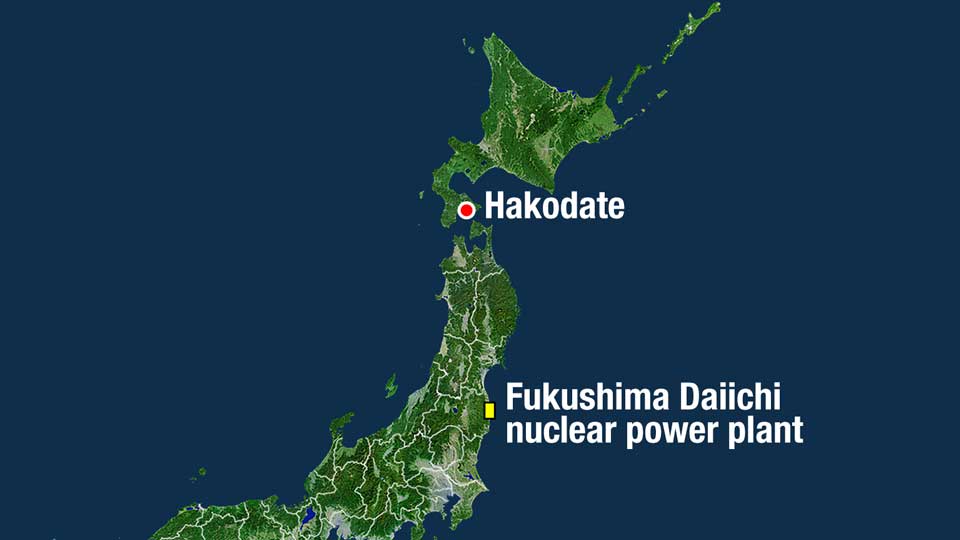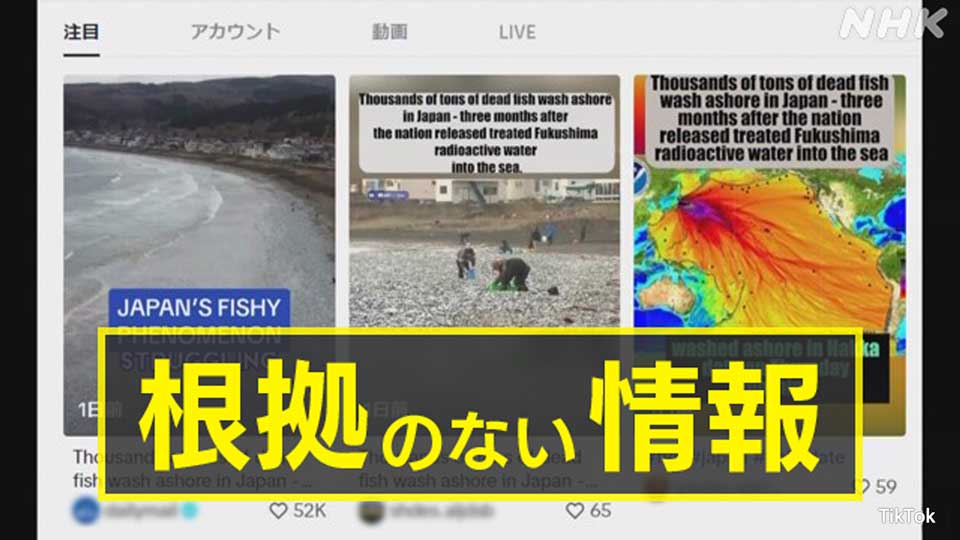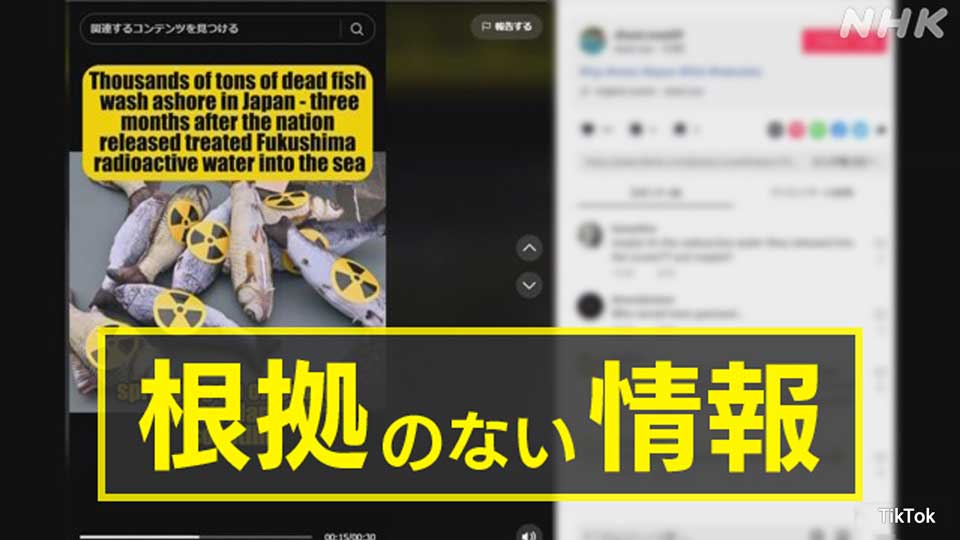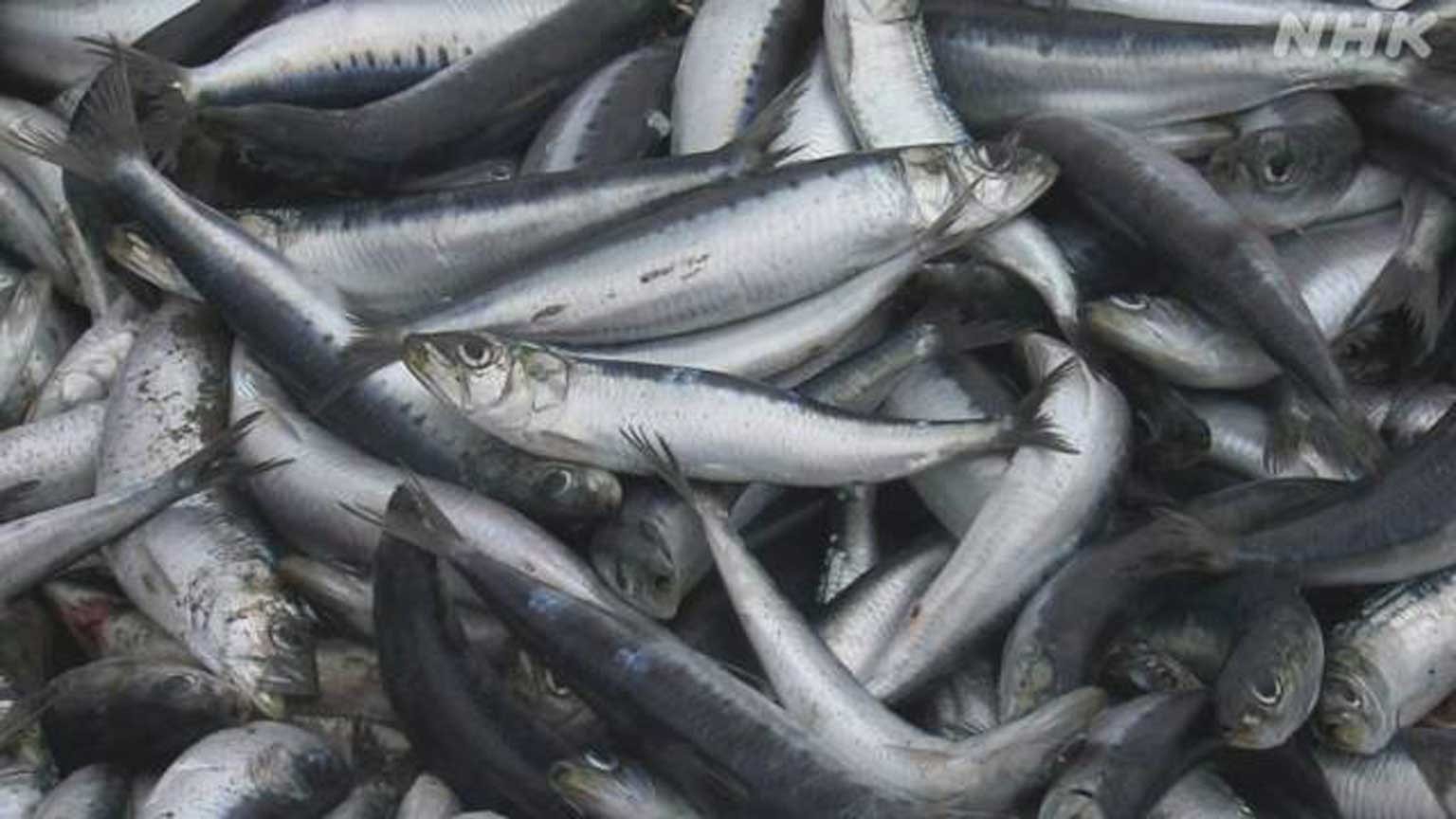
UK tabloid causes a stir
The Daily Mail, a major British tabloid newspaper, posted a video on social networking site TikTok as well as an article on its website with the statement, "Thousands of tons of dead fish wash ashore in Japan - three months after the nation released treated Fukushima radioactive water into the sea."

Several videos connecting the fish die-off with the Fukushima Daiichi nuclear accident have also been posted on social media, including X.

The posts prompted some overseas media outlets to report, "There is concern that the discharge of treated water may be the cause" of the fish die-off.
Experts debunk false claim
Experts say there is no basis for linking the fish kill with the release of the treated water.
Fujioka Takashi of the Hakodate Fisheries Research Institute notes fish die-offs are not uncommon. He says the school of fish could have been chased ashore by predators such as dolphins and tuna, or it may have suddenly encountered frigid waters.
Fujioka emphasizes that it's unlikely seawater from Fukushima would ever reach Hakodate, which is more than 600 km away. He also points out that no abnormalities have been detected in sardines caught in the Hakodate area.
Japan's fisheries agency combats misinformation
Fisheries agency official Mori Ken says both the agency and the ministry of environment verified that the presence of tritium in the ocean off the coast of Fukushima was below detectable levels. He says insinuations that the fish die-off was caused by the treated water are unfounded.
Mori adds, "The spread of unsubstantiated information is a worrying situation so I'd like to disseminate accurate information, including the results of monitoring."
Japan's Agency for Natural Resources and Energy has released a statement saying, "It has been confirmed that the treated water was discharged safety and no abnormalities have been observed."
The Fukushima Daiichi plant suffered a triple meltdown in the 2011 earthquake and tsunami.
Water used to cool molten fuel there has been mixing with rain and groundwater. The accumulated water is being treated to remove most radioactive substances, but still contains tritium.
Before releasing the treated water into the sea, the plant's operator dilutes it to reduce tritium levels to about one-seventh of the World Health Organization's guideline for drinking water.
